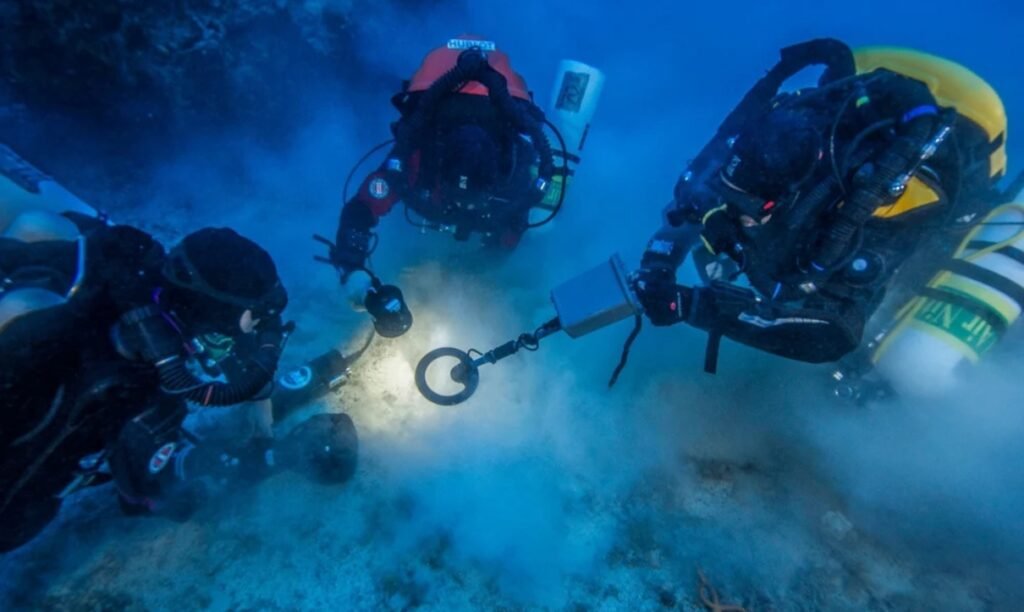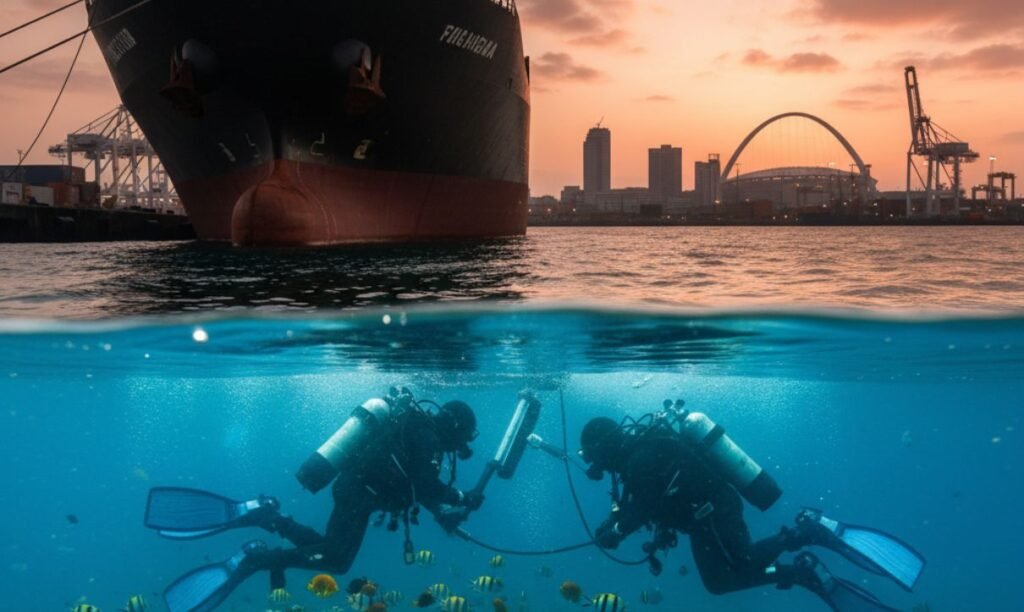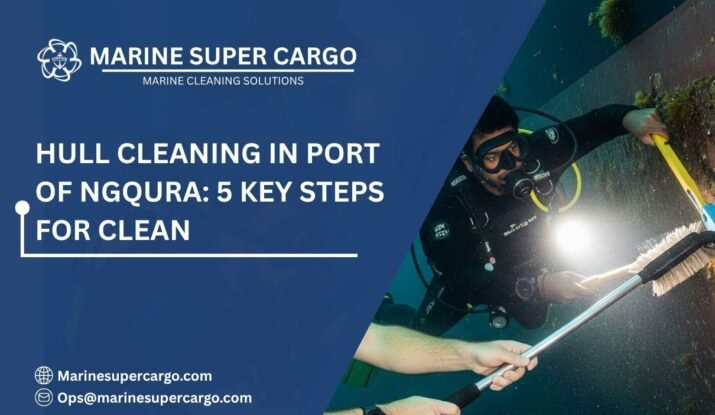Hull Cleaning in Port of Ngqura: Mastering Compliance and Marine Efficiency
Hull cleaning in Port of Ngqura is like taking the barnacles off a champion racehorse—clean hulls mean peak performance at every turn. Vessels entering the port face biofouling: slimy layers of algae, barnacles, and micro-organisms that drag you down, hike fuel use, and potentially breach international guidelines. Hull cleaning is now mandatory, ensuring ships stay sharp, compliant, and efficient in a highly competitive global market.
Understanding Biofouling and Its Impact
Biofouling is nature’s way of decorating a ship, but these “decorations” sap energy and profits. As hulls slide through the waters off Ngqura, marine growth accumulates, compounding drag and risks. Hull cleaning in Port of Ngqura removes these unwanted guests, safeguarding not only vessel performance and cost savings but also helping prevent the spread of invasive species. Proactive measures save money and trouble, especially with monitoring requirements for marine alien species.
Regulatory Requirements for Hull Cleaning
The Port of Ngqura is serious about hull cleaning. Every operation requires a hull cleaning permit, issued by the Harbour Master, with strict adherence to local and international environmental legislation. Hull cleaning follows these steps: apply per port, furnish all compliance documents, and pay a once-off fee for up to three years. Certified providers keep the port safe and vessels legal, so planning is essential for uninterrupted operations.

Methods: Hull Cleaning in Port of Ngqura Explained
Options for hull cleaning in the Port of Ngqura range from traditional dry-docking to efficient in-water systems. Dry-docking is comprehensive but costly and slow, while in-water cleaning offers a swift, practical solution for servicing hulls at berth. Approved providers use advanced brush, water-jet, and encapsulation technologies, which suit Port of Ngqura’s unique environment and operational needs. Choosing the right method helps avoid downtime and costly regulatory setbacks.
Monitoring and Environmental Protection
Hull cleaning isn’t only about clean ships—it’s a cornerstone for protecting coastal ecology. The port conducts baseline marine surveys and continual environmental monitoring to track the impact of hull cleaning on alien species and ecosystem health. Hull cleaning service providers must prove capacity to contain debris, sample water and sediment, and report results to comply with stringent standards. Environmental stewardship is integrated at every step.
Cost, Scheduling, and Planning
Smart planning makes hull cleaning in the Port of Ngqura practical and affordable. Application fees per port cover a three-year term, making forward scheduling essential for ship operators who need predictable, cost-effective maintenance. Timely hull cleaning helps avoid last-minute penalties, vessel delays, and lost revenue—think of it as regular health checks for high-performance machines.
Hull Cleaning in Port of Ngqura: Technical Jargon Made Easy
- Biofouling: Marine life clinging to ships, increasing drag.
- Encapsulation: Containing cleaning waste—protecting local water quality.
- In-water cleaning: Cleaning hulls while ships stay afloat; it saves time.
- Permitting: Legal paperwork allowing cleaning within port limits.
Understanding these terms makes hull cleaning in the Port of Ngqura accessible to newcomers and seasoned managers alike.
How Hull Cleaning Benefits Sustainability
Every hull cleaning stands for cleaner, safer seas. Removing marine growth helps prevent invasive species from spreading, reduces greenhouse gas emissions, and supports global goals for marine biodiversity. By partnering with certified, eco-conscious providers, ship owners not only comply with MARPOL and IMO but demonstrate leadership in sustainable shipping.
“Marine cleaning, anytime. Anywhere. 🌊 #GlobalMarine”#shipping #maritime #ship #cruises #sealife #port #shipping #marine #captain #vessel #ships #cargo pic.twitter.com/GgKTqEMETK
— Marine Super Cargo (@Marinsupercargo) October 4, 2025
Choosing a Service Provider for Hull Cleaning
Picking a hull cleaning partner at Port of Ngqura is like choosing a curator for priceless art. The right provider maintains compliance, keeps records, and uses best-in-class equipment to minimize environmental impact. Hull cleaning requires proof of skills, references, technological competence, and capacity—operators must review credentials, track records, and environmental practices before making a selection.
Looking Ahead: Innovations and Future Trends
The future of hull cleaning in the Port of Ngqura will be shaped by automation, AI analytics, and real-time environmental monitoring. As regulatory oversight increases, expect providers to roll out smarter cleaning bots, predictive scheduling tech, and improved containment strategies. Hull cleaning in Port of Ngqura will keep evolving to save energy, cut pollution, and support a resilient maritime economy.
Marine Supercargo Expands Services: Drug & Alcohol Testing for Safer Seas
Marine Supercargo, a trusted global provider for hull cleaning in Port of Ngqura, has recently introduced professional Drug & Alcohol Testing services. This step is critical for ship owners, operators, and managers who aim to maximize crew safety, comply with IMO and MARPOL laws, and boost operational reliability.
Drug & Alcohol Testing works hand-in-hand with hull cleaning in Port of Ngqura strategies, offering peace of mind and facilitating safer working environments. Effective testing helps prevent accidents and ensures that every crew member meets international fitness standards. With Marine Supercargo’s expanded services, hull cleaning in Port of Ngqura is now a pillar of holistic operational excellence in shipping.
Real-Life Benefits: Hull Cleaning in Port of Ngqura
Some real-world gains from hull cleaning in Port of Ngqura include:
- Lowered fuel costs and reduced emissions
- Quicker port turnaround times
- Fewer regulatory headaches
- Healthier local marine ecosystems
Routine hull cleaning in Port of Ngqura ensures more reliable voyages and robust compliance with global shipping standards.

Conclusion: Three Strategic Wins from Hull Cleaning in Port of Ngqura
Hull cleaning in Port of Ngqura delivers efficiency, compliance, and environmental stewardship all in one. The top lessons: (1) Proactive cleaning cuts costs and keeps fleets legal, (2) Monitoring and permits are non-negotiable for safety and sustainability, (3) Tech-driven solutions and expanded safety testing safeguard crews and cargo. For expert guidance and reliable results, partner with CleanShip.co for tailored hull cleaning in Port of Ngqura.
FAQs About Hull Cleaning and Marine Testing
Why is Drug & Alcohol Testing essential on ships?
Testing helps maintain safety, prevent accidents, and stay legal within the Port of Ngqura, supporting responsible shipping and incident-free operations.
What does in-vessel hull cleaning mean?
In-vessel hull cleaning in Port of Ngqura uses underwater machines or divers to remove marine growth, making sure ships perform optimally without dry-docking.
How does hull cleaning in the Port of Ngqura help the environment?
Eco-friendly hull cleaning in Port of Ngqura stops the spread of invasive species and reduces emissions, protecting local wildlife and global marine health.
Is a permit required for hull cleaning in the Port of Ngqura?
Yes—applying for a port permit is essential, and only approved providers can conduct hull cleaning in the Port of Ngqura under strict regulatory safeguards.
How do I know if my ship needs hull cleaning in Port of Ngqura?
Visible growth, increased fuel consumption, and slower transit times signal it’s time for hull cleaning in Port of Ngqura; regular inspections are smart.


